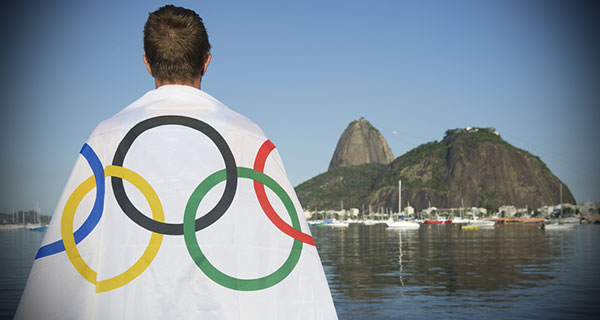It used to be the epitome of sporting excellence but could the decision to hold the Olympics in Rio be the undoing of the Games or will it be the latest doping scandal that hits hardest?
No matter where the Olympics is held, there’s always some kind of furore in the lead up, usually about the infrastructure not being up to scratch. But poor infrastructure may be the least of the issues for the Games of the 44thOlympiad.
The rampage of the Zika virus has left many sportsmen, sportswomen and indeed, media presenters refusing to travel to Brazil. The Australian golf and tennis teams have been particularly hard hit, with top names such as Jason Day, Adam Scott, Nick Kyrios, Bernard Tomic and Lleyton Hewitt all announcing they won’t travel to Rio.
While some have cited the Zika virus as the main reason, other believe that the Olympics no longer represents the highest echelon of their sport. Irish golfer Rory McIlroy has gone as far as saying that while he will watch the Olympics, he’s “not sure golf will be one of the events I watch”.
From Australia’s media, Sam Armytage has announced that she will not be involved in the Olympic coverage from Rio as she hopes to fall pregnant one day and cites the Zika virus as a concern.
But Zika virus, sporting snobbery and infrastructure issues aside, the biggest threat to the Rio Olympics is undoubtedly the much-awaited decision by the International Olympic Commission (IOC) on whether or not it will ban Russia from competing, after the nation was found to have systematically used banned drugs to improve the performance of its athletes.
The IOC has chosen to delay a decision and “explore legal options” after members failed to agree on whether Russia should be banned. “[The IOC] will explore the legal options with regard to a collective ban of all Russian athletes for the Olympic Games 2016 versus the right to individual justice,” a statement said, although an immediate ban was placed on the Russian Sports Minister.
The IOC is awaiting the ruling of the Court of Arbitration in Sport (CAS) on the banning of Russia from competing in Rio track and field events by the International Association of Athletics Federations (IAAF).
The doping was revealed in a report commissioned by the World Anti Doping Association (WADA), which found evidence of a state-sponsored doping program following the Winter Olympics in Sochi, Russia in 2014. The report found that ‘dirty’ urine samples were replaced with ‘clean’ ones and that Russia’s Deputy Sports Minister had control over which athletes were tested.
In today’s world with its mired legal wranglings, it’s understandable that the IOC is a little nervous about making adecision that could see it spend the next five years in court. However, if the Olympics is to be considered a truly great sporting arena, reminiscent of the great gladiatorial contests of Ancient Greek history, then it must make a stand on what is fair. Otherwise, why should anyone care?
With the cost of sending the Australian Olympic team to Rio tipped to be around $5.5 billion, should we be sending our athletes to compete when the decks are clearly stacked against them?
What do you think? Does the Olympics still represent the best of sporting achievement? Or has it, like many sporting codes, lost the battle against doping of competitors? Should Australia consider boycotting the Olympics if Russia is allowed to compete?
Read more at ABC.net.au

